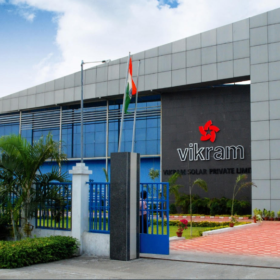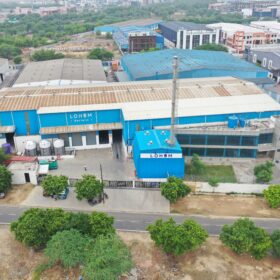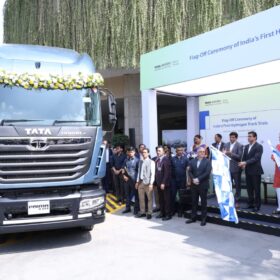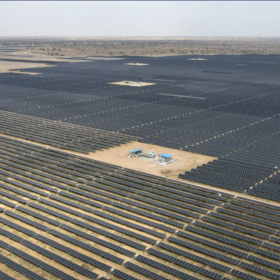UltraTech Cement Limited, the largest manufacturer of grey cement, white cement and ready-mix concrete in India, has announced its commitment to the GCCA 2050 Cement and Concrete Industry Roadmap for Net Zero Concrete.
This commitment to produce carbon-neutral concrete by 2050 is a collective commitment of the world’s leading cement and concrete companies to fully contribute to building the sustainable world of tomorrow. The roadmap also includes a sectoral commitment to cut CO2 emissions by a further 25 per cent by 2030.
UltraTech has made this commitment as a founding member of Global Cement and Concrete Association (GCCA).
UltraTech is among forty of the world’s leading cement and concrete manufacturers to affirm their commitment to net zero concrete by 2050 and agree to an ambitious intermediate goal of preventing 5 billion tonnes of CO2 emissions by 2030.
The GCCA has published a detailed ‘Concrete Future’ roadmap which sets out the path that the industry will follow to fully decarbonize by 2050, a target aligned with the Paris Agreement to limit global warming to 1.5°C.
“We at UltraTech are fully committed to work together with our partners and stakeholders with the aim of achieving the Net Zero goal. GCCA’s ‘Concrete Future’ roadmap outlines this collective endeavour and will guide us to a Net Zero future for the building material sector. The roadmap will help deliver a decarbonised industry, provide Net Zero concrete and, together, help build a sustainable world of tomorrow,” said Kailash Jhanwar, Managing Director, UltraTech Cement.
The ‘Concrete Future’ roadmap is built around a seven-point plan that relies on ambitious yet achievable actions to reduce the amount of CO2 intensive clinker in cement, significantly reduce fossil fuel use in manufacturing, and accelerate innovation in products, process efficiency and breakthrough technologies including carbon capture. This move by the members of the GCCA marks the biggest global commitment by an industry to net zero so far – bringing together companies from the Americas, Africa, Asia (including India and China), and Europe.
GCCA members account for 80 per cent of the global cement industry volume outside of China, and also include several large Chinese manufacturers. Championing Climate Action UltraTech’s commitment to GCCA’s Net-zero Concrete Roadmap is in line with its ambitious sustainability targets and efforts to accelerate the decarbonisation of its operations.
UltraTech has taken a holistic approach and has integrated low carbon strategy into its business conduct. It is scaling up investments in the development of innovative products and services, improving energy efficiency, increasing the share of renewable energy and scaling up the use of alternative fuels and alternate raw material (AFR) in its manufacturing operations.
As part of its RE100 commitment led by the Climate Group in partnership with CDP, the Company aims to meet 100 per cent of its electricity requirement through renewables sources by 2050. Part of its EP100 initiative, UltraTech targets to double energy productivity by FY35, from the base year of FY10.
The Company has committed to reduce Scope 1 GHG intensity by 27 per cent by 2032 from the base year of 2017. UltraTech has also committed to reduce Scope 2 GHG intensity by 69 per cent by 2032 from the base year of 2017. These GHG emission targets have been validated by the Science Based Targets Initiative (SBTi).
UltraTech is leveraging Green Energy as a key enabler for decarbonisation. The Company aims to scale up its green energy mix to 34 per cent of its total power requirement by 2024. It is doing this by continuously improving energy productivity, scaling up use of renewable energy and reusing heat from its own operations through Waste Heat Recovery Systems (WHRS).
UltraTech currently has 273 MW of Green Energy capacity which includes 125 MW of WHRS installed capacity and 148 MW of contracted renewable energy.
UltraTech has similarly made significant progress on the use of AFR in its manufacturing operations. UltraTech uses waste including municipal solid waste as alternative fuel in its kilns through co-processing. It uses industrial waste as alternate raw material in manufacturing thus reducing and conserving the use of natural resources such as limestone. In FY21 alone, UltraTech has used more than 20 million tonnes of industrial waste as raw materials. This has resulted in annual CO2 reduction of more than 10 million tons.
Additionally, UltraTech has used three lakh tonnes of waste, including municipal waste, as alternate fuel in its kilns. As a result, in FY21, UltraTech replaced more than three per cent of its fuel requirement with alternative materials, and more than 18 per cent of its raw material needs were met through alternate raw material. In fact, over the last ten years UltraTech has used more than 100 million tonnes of waste as raw material and fuel in its manufacturing operations





